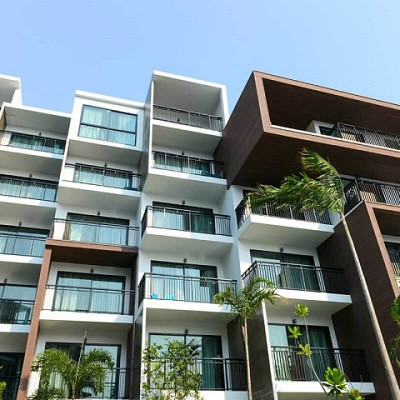Special Features of Thai Housing: Can a Foreigner Be Surprised?
There are many aspects of daily life in Thailand that might surprise a foreigner. If you are considering renting or purchasing property in the country, it’s important to be aware of certain characteristics of Thai homes. Understanding these features can help you avoid uncomfortable situations.

One of the most important rules is that you cannot enter a temple or someone's home in Thailand while wearing shoes! In fact, you might even have to remove your shoes before entering small shops, massage parlors, or hair salons. It is considered highly disrespectful to enter a house with shoes on. Many Thais sit or sleep on mats on the floor, so they keep their floors very clean.
In condominiums, the management and board of owners set rules that all residents must follow. In most residences, pets are not allowed, as it’s believed they may cause inconvenience to neighbors, such as noise.
The management often coordinates with the post office to ensure that all parcels are delivered to the condominium’s office. Residents can pick up their packages from a designated area. Alternatively, condominium staff may collect parcels from delivery agents, allowing residents to retrieve them at their convenience.
All condominium residents are allowed to use shared amenities for free, which usually include a swimming pool, gym, coworking space, sauna, BBQ area, and carts for transporting belongings. If you rent a property, it’s a good idea to confirm with the owner whether you have access to these facilities.
Apartments in Thailand often do not come with washing machines, but there are usually public laundry rooms in the building where residents can use a machine for a small fee. You’ll need to bring your own laundry detergent. In cities, there are also self-service laundromats where you can wash your clothes for a fee.
Some Thai homes don’t come with kitchens. When choosing a rental property, it’s important to check what equipment is available. Often, there’s only a microwave and a refrigerator, with kettles or stoves being less common. In some houses, the kitchen might be set up outdoors, with a gas stove on the patio. Street food is very popular and widely available in Thailand, both in big cities and small towns. Many Thais prefer buying street food for their families instead of cooking at home.
Garbage disposals are not common in Thai condominiums, but there is usually a room on each floor with garbage bins. Since environmental concerns are important, waste is typically sorted into categories like organic, recyclable, and mixed.
Hot water is not standard in many Thai homes, whether they are high-rise apartments or private houses. There are exceptions, but often hot water is provided by an electric flow boiler in the shower. Some homes or apartments might not have hot water at all. This is something to consider when choosing accommodation. Many locals do not use heated water, and bathtubs are rare, mainly found in homes built for foreigners.
In high-rise buildings in Thailand, you will often find vending machines that dispense drinking water, allowing you to fill up your own containers. This is a more affordable option than purchasing water from a supermarket. However, many people are hesitant to drink this water if it hasn’t been boiled.
A standard toilet, as we know it, is not always present in Thai homes. Instead, you may find a simple hole in the floor without a seat or flushing system. There is usually a water container nearby that is used to wash everything down manually.
Thais traditionally place small altars near their homes—known as «spirit houses» or sanphraphum in Thai. You can see these spirit houses near private homes, in condominium areas, and in front of shops, restaurants, and office buildings. These altars resemble traditional Thai houses or temples. Thais make daily offerings to the spirits, often leaving water bottles, sweet soda, sweets, fruits, rice, and flowers. Pre-made offering kits are sold in stores. It’s important to note that touching or disturbing these offerings is strictly prohibited.
A common type of property in Thailand is the shophouse, which is a narrow, multi-story building. Typically, a shop operates on the ground floor, while the family of the shop owner lives on the upper floors.
Special features of Thai housing...can a foreigner be surprised?
It’s common to find images of revered monks and kings displayed in Thai homes. Religion and respect for the monarchy are fundamental parts of Thai culture. Under no circumstances should you show disrespect towards these images, as it would greatly offend the homeowners and is punishable by law. Disrespect for the monarchy can even result in imprisonment.
Many Thai homes are equipped with mosquito nets on windows and doors, which are vital in tropical climates. Mosquitoes are not only annoying but can also carry diseases like malaria and dengue fever. Most windows in Thailand are sliding to accommodate these nets.
Small lizards, such as tokay geckos, may sometimes enter the house. Named after the distinctive sound they make, these lizards are harmless to humans. They usually perch near light sources, feeding on insects. Although there are often many of them outside, only a few may make their way inside. If you encounter one in your home, there’s no need to panic.
Many Thai homes do not have air conditioning and rely on fans instead. This might seem unusual in such a hot climate, but air conditioners consume a lot of electricity, and locals often avoid using them to save money. However, most modern buildings are equipped with air conditioning.




